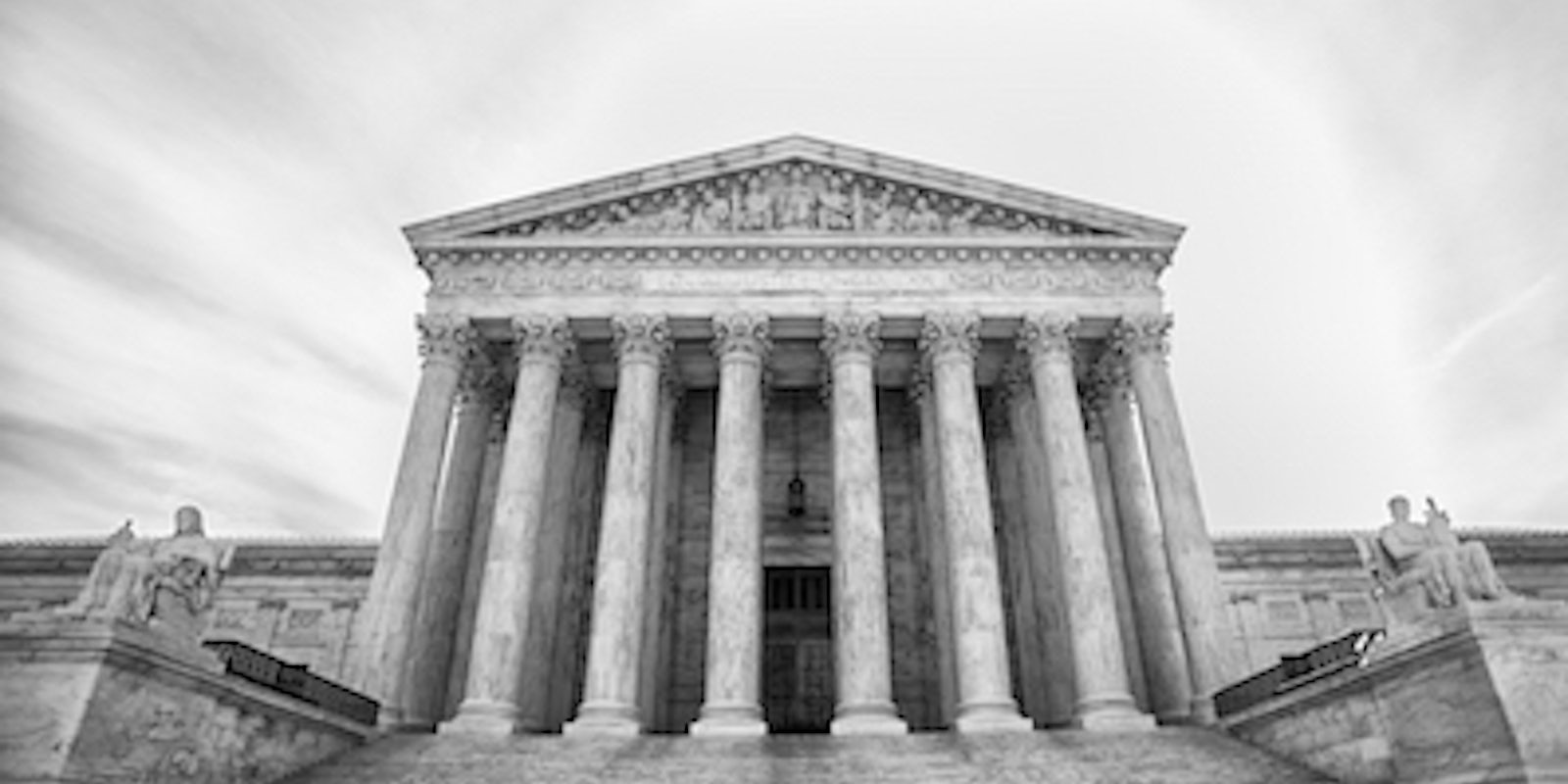The Supreme Court on Thursday struck down affirmative action programs at Harvard and the University of North Carolina in a decision that was split along ideological lines.
The move quickly drew criticism from Democratic lawmakers who argued it created new hurdles in achieving racial justice, while receiving praise from Republicans who have long considered affirmative action to be discriminatory.
Writing for the conservative majority, Chief Justice John Roberts argued the programs “lack sufficiently focused and measurable objectives warranting the use of race, unavoidably employ race in a negative manner, involve racial stereotyping, and lack meaningful end points.”
Roberts wrote that such programs wrongly concluded “that the touchstone of an individual’s identity is not challenges bested, skills built, or lessons learned but the color of their skin.”
In her dissent, liberal Justice Sonia Sotomayor said the Court decision “cements a superficial rule of colorblindness as a constitutional principle in an endemically segregated society where race has always mattered and continues to matter.”
Sotomayor is the only remaining member of the majority the last time the Court was presented with an affirmative action-related case in 2016. Then, the justices determined in a 4-3 decision that the University of Texas at Austin program could go on.
Thursday’s decision brought swift condemnation from Democratic lawmakers.
“The Supreme Court’s ruling put a giant roadblock in America’s march toward racial justice,” said Senate Majority Leader Chuck Schumer (D-N.Y.). “The consequences will be felt immediately as students of color will face an admission cycle next year with fewer opportunities. These negative consequences could continue for generations.”
Sen. Cory Booker (D-N.J.) called the decision a “devastating blow,” adding that “affirmative action has been a tool to break down systemic barriers.”
Rep. Jamaal Bowman (D-N.Y.) said the move takes “us back in time,” and said the affirmative action policies “are critical to ensuring that our Black and brown students, who have already experienced redlining and systemic underinvestment in their schools and communities, have an equitable shot at higher education to pursue their dreams.”
Rep. Summer Lee (D-Penn.) said she was “disgusted that our country just enshrined racial inequity in higher education.”
Republicans, on the other hand, praised the Court’s decision and echoed its ruling that affirmative action is unconstitutional.
House Speaker Kevin McCarthy (R-Calif.) argued the decision will “make the college admissions process fairer and uphold equality under the law.”
Affirmative action “discredits the hard work and diverse backgrounds that countless applicants have, and requires colleges to value one single characteristic above others,” said Sen. Marsha Blackburn (R-Tenn.), who called the programs “un-American.”
Sen. Ted Cruz (R-Texas) said in a statement that the decision ends “our country’s long and failed experiment with racial quotas and government-sanctioned racial discrimination.”
“Both Harvard and UNC have had long and ugly traditions of discrimination—Harvard with its anti-Jewish quotas in the 20th century and UNC with racial segregation—that made it impossible for a prospective student to be judged on his or her own merit, rather than their skin color or religious background,” Cruz said. “These universities eventually ended these forms of overt discrimination, instead substituting them for a different, more subtle form of discrimination in Affirmative Action.”
The case against UNC argued the university’s policies discriminated against white and Asian applicants by favoring Black, Hispanic, and Native American applicants, while the Harvard case accused the university’s admission policies of discriminating against Asian American students.
Rep. Michelle Steel (R-Calif.) praised the ruling, noting in a statement that she immigrated to the United States from Korea to pursue an education.
“For 40 years, American colleges and universities have stacked the deck against Asian Americans in the name of diversity,” she said. “As a nation, we believe, as taught by Dr. Martin Luther King Jr., that every human should be judged ‘not by the color of their skin, but by the content of their character.’”
Rep. Mark Takano (D-Calif.) offered a different view, saying that as an Asian American graduate of the University of California, Riverside and Harvard, he firmly believes he has personally benefited from affirmative action policies.
“All students should have access to a quality education, and everyone benefits when our institutions reflect the diversity of our country,” Takano said ahead of the ruling.
Similarly, Rep. Judy Chu (D-Calif.), chair of the Congressional Asian Pacific American Caucus, said that decision is not a win for the Asian American, Native Hawaiian, and Pacific Islander community.
“For AANHPI communities, the end of race-conscious admissions is unlikely to change the net numbers of Asian American acceptances at elite institutions, but AANHPI students from low-income, refugee, or indigenous backgrounds will encounter more hurdles to acceptance,” Chu said.
But the Supreme Court did not rule out race entirely in admissions considerations, saying in its decision that “nothing prohibits universities from considering an applicant’s discussion of how race affected the applicant’s life, so long as that discussion is concretely tied to a quality of character or unique ability that the particular applicant can contribute to the university.”



